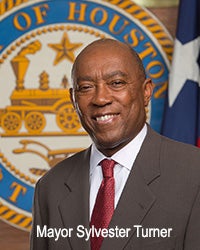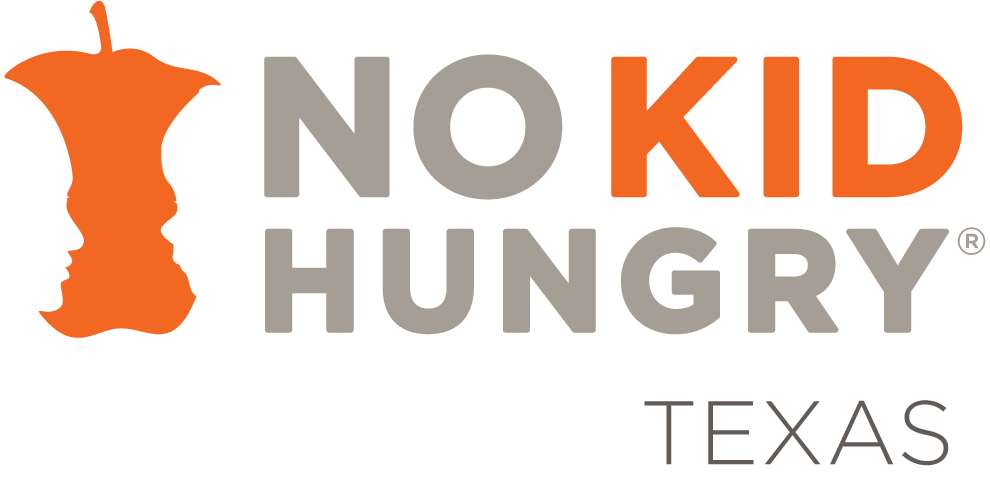As No Kid Hungry reflects on Black History Month, we honor the incredible contributions Black Hunger Heroes have made in service of feeding and nourishing their communities. The Honorable Mayor Sylvester Turner from Houston shares his story below.

Mayor, City of Houston President, African American Mayors Association (AAMA)
What initiatives are you excited about in your city?
As an African American mayor, I realize the challenges that people of color have faced historically from housing to education, access to healthcare and jobs and even food insecurities—just to name a few. Therefore, it was imperative to me to implement strategic programs that reached the least of those in our city and provide them an opportunity to succeed. One of our signature priorities include Complete Communities, an initiative designed to revitalize and improve Houston’s most under-resourced neighborhoods.
This initiative is near and dear to me. I grew up in a community called Acres Homes as one of nine kids to a single mother who worked as a maid in the Rice Hotel located in downtown Houston, while raising and providing for her children. And after all these years, I still live in Acres Homes, one of ten identified communities in our city that has been underserved and overlooked for decades. The Complete Communities initiative seeks to bridge the gap between equity and opportunity for all residents, while ensuring everyone can achieve success without barriers to opportunity. I firmly believe Houstonians will accomplish this as we work collectively with private, public, and nonprofit sector partners to overcome economic, environmental and equity challenges that will ultimately transform Houston’s legacy into one everyone can be proud of.
How did you get involved in the nutrition / anti-hunger space?
In November 2020, during the early part of the pandemic, our city council approved a $2.2 million relief program to assist local restaurants and provide meals to Houstonians impacted by COVID-19. We engaged 15 local restaurants and catering companies to produce and deliver up to 20,000 meals per week through the end of the year. We later extended the program using CARES Act funding. We knew that COVID-19 affected Houstonians’ ability to meet basic needs and provide for their families, especially those experiencing financial distress. Also, as president of AAMA, I have participated in conversations with several of my colleagues experiencing similar issues of childhood food insecurity in their respective jurisdictions, primarily in underserved communities. Thankfully, coalitions like the Mayors Alliance to End Childhood Hunger, launched in partnership with Share Our Strength’s No Kid Hungry campaign and mayors across the country, exist to provide mayors with resources and opportunities to forge relationships with community partners, faith-based leaders, local food banks and schools to end childhood hunger as well as expand access to healthy options for our residents challenged by this inhumane reality.
What are the biggest nutrition issues the city of Houston is facing? What are some of your achievements in this space?
In 2020, it was reported that over a quarter of a million children in Harris County were experiencing food insecurities, with most of those children living in the city of Houston. That is nearly 20% of our age 0-17 years of age population. Moreover, the child food insecurity rate in Houston is higher than the national average of roughly 17%, placing Houston in the top ten U.S. cities with the highest rates of childhood food insecurity.
Unfortunately, this issue was exacerbated during the COVID-19 pandemic. Low-income families, mainly Black and brown populations, struggled the most as they were already more likely to be under-resourced before the pandemic.
However, Houston is a “Can Do” city that is poised to end childhood hunger. For example, my Complete Communities initiative has partnered with several community partners to setup produce gardens in food deserts to directly address food insecurity by providing healthier options, while also teaching youth how to garden and grow their own produce. The Mayor’s Office of Education is also currently working to become the first UNICEF Child Friendly City in the United States by leveraging partnerships to expand accessibility to resources during an emergency. Lastly, I joined onto a letter earlier this month by the Mayors Alliance to End Childhood Hunger, signed by more than 45 mayors—many of which are members of the AAMA—urging Congress to extend USDA’s waiver authority which is set to expire soon so that schools and community organizations can maintain their flexibility in offering federal child nutrition programs to our cities’ most vulnerable children.
In your role as Mayor and the President of the African American Mayors Association, what are your thoughts on the intersection of race, equity and food security?
There cannot be conversations around racial equity without first addressing basic human needs. Providing a child with a quality education, safe neighborhood, and adequate community services is important; however, if the same child that has access to all the benefits of living in Houston or any city quite frankly, yet still goes to school hungry or worries about when they will receive their next meal once they return home from school, we have failed that child.
This issue is not unique to any specific city, which was apparent by the diverse signatures on the letter to Congress. Mayors from both sides of the aisle, leading large and small cities responded to our children with a unified voice. As mayors, we understand our responsibility to uplift our youth and provide them access to the highest quality of life.
To find out more about Mayor Turner’s accomplishments and work, visit the City of Houston’s website here.



